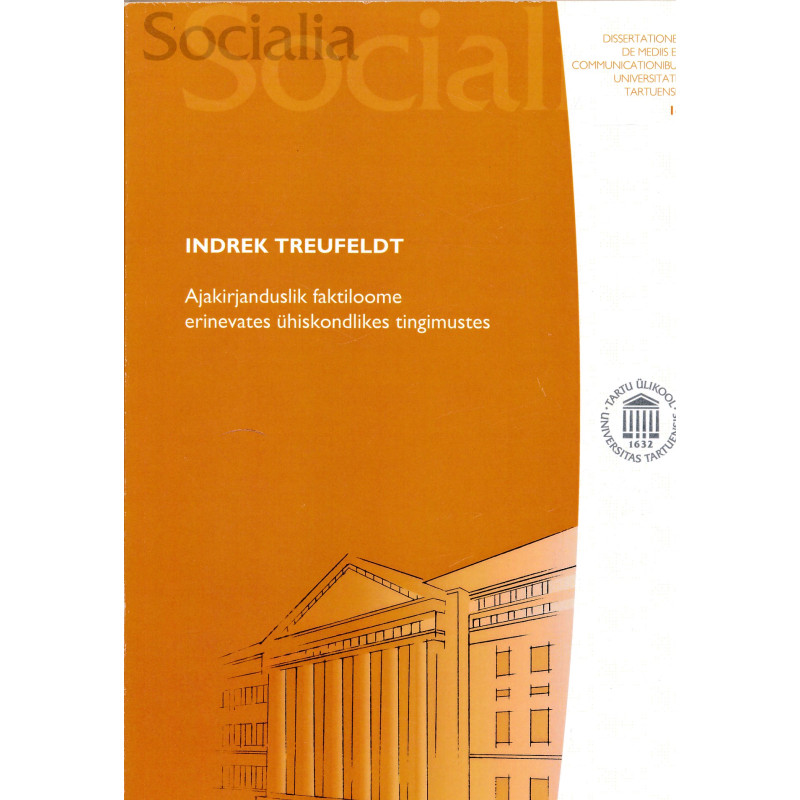



Tartu : Tartu Ülikooli Kirjastus, 2012
289 p. : ill.
ISBN: 9789949321636
Dissertationes de mediis et communicationibus Universitatis Tartuensis, 1406-2313 ; 16
Paperback used dissertation in good condition.
The thesis discusses the construction of journalistic facts – the media’s way of representing reality. In addition to selection of events for reporting, the construction of journalistic facts also involves considerations concerning the relationship of a journalistic text to the public that it addresses, as well as those concerning the various mechanisms of control employed by the authorities and editorial bodies to screen journalistic material scheduled for publication. The thesis seeks to test the question of whether journalistic fact construction can be said to involve a limited number of sociopragmatic universals or modalities which operate equally in the context of authoritarian, totalitarian as well as democratic societies. For this purpose, the thesis includes an extensive section that sets out the results of the author’s empirical research into the construction of journalistic facts in societies falling within each of the three categories mentioned. The first body of texts analysed in the thesis consists of Estonian printed texts published in the largest Estonian daily (Päevaleht) from the beginning of 1939 to March 1940 and of the scripts of Estonian-language newscasts by Finland’s national broadcasting company from the period of December 1939–March 1940. The second body of texts is the corpus of newscasts by the Estonian Television (ETV) during its initial period of operation, 1955–1958. The news was broadcast chiefly in Estonian and in Finnish. The part of analysis concerned with democratic society examines, in comparative perspective, the journalistic construction of reality in Estonia, the UK, France and Germany. Analysis demonstrates that in 1939 Estonia was dragged into what may in contemporary terms be described as a war of information. This was accompanied by a crisis in public communication, which was soon denatured to a point where it no longer fulfilled its purpose. In totalitarian Soviet Estonia the audience of television soon became a public in its own right – an independent television public. Even in a totalitarian setting, the power holders were unable to establish complete control over that public – thus, they could not control all possible relations that were susceptible to arise in interpreting and recognising various texts. The conclusion of the thesis is that the construction of journalistic facts cannot be fully predetermined and therefore can be said to operate as an open system. The openness of the system is guaranteed by its components: the authorities, the public and the media. What varies across different types of society is merely the institutional mechanism of exerting control over the media, which has little or no impact on substantive issues concerning the reflection and interpretation of reality.